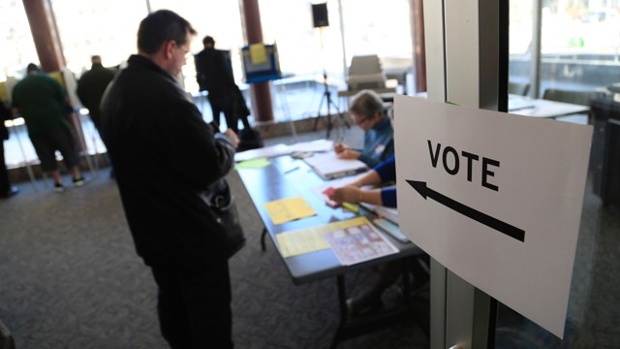-
Tips for becoming a good boxer - November 6, 2020
-
7 expert tips for making your hens night a memorable one - November 6, 2020
-
5 reasons to host your Christmas party on a cruise boat - November 6, 2020
-
What to do when you’re charged with a crime - November 6, 2020
-
Should you get one or multiple dogs? Here’s all you need to know - November 3, 2020
-
A Guide: How to Build Your Very Own Magic Mirror - February 14, 2019
-
Our Top Inspirational Baseball Stars - November 24, 2018
-
Five Tech Tools That Will Help You Turn Your Blog into a Business - November 24, 2018
-
How to Indulge on Vacation without Expanding Your Waist - November 9, 2018
-
5 Strategies for Businesses to Appeal to Today’s Increasingly Mobile-Crazed Customers - November 9, 2018
Michigan straight-party voting ban won’t take effect
The court, which now has eight members, rejected Schuette’s request for a stay of a preliminary injunction issued against a recent MI law banning straight-party voting. Two of the court’s conservatives, Justices Clarence Thomas and Samuel Alito, would have granted Schuette’s application, but four justices must agree to grant a hearing.
Advertisement
He posted on his Facebook page before the ruling was issued, “Elections matter, because they determine who will write the laws for our state”.
“The straight-party option helps MI voters, particularly African-American voters, cope with one of the longest ballots and longest waiting times to vote in the entire country on Election Day”, those challenging the measure argued.
Schuette took the fight to the Supreme Court after the full 6th Circuit court refused to hear the case.
Schuette, acting on behalf of Secretary of State Ruth Johnson, took his case against straight-party voting to the U.S. Supreme Court on September 2.
A lower court and federal court of appeals issued an injunction stopping the law from taking place, a move which the high court allowed to stand on Friday. A federal trial judge said the new law would mean longer lines at predominantly black voting sites.
After the court’s order, Michigan’s Secretary of State Office spokesman Fred Woodhams confirmed the straight-party option would still be available on Election Day. They pointed out that MI has joined 40 other states “by requiring voters to actually vote for each candidate they intend to support”. The Election Bureau department may now certify the ballot, and local clerks may finalize and print their ballots. “I will not play a role in disenfranchising voters”.
The three-judge 6th Circuit panel that declined to intervene immediately will next fully consider the state’s appeal of U.S. District Judge Gershwin Drain’s injunction, the outcome of which will affect future elections.
The law banning straight-party voting was passed by the Republican-led Legislature late previous year and signed into law by GOP Gov. Rick Snyder in January.
When Michigan Gov. Rick Snyder signed the legislation in January, he noted concerns that elimination of the straight-ticket option could result in longer lines at the polls and asked lawmakers to expand absentee voting options, but that hasn’t happened.
On Tuesday, state Senate Majority Leader Arlan Meekhof, R-West Olive, House Speaker Kevin Cotter, R-Mt. “Now the U.S. Supreme Court has spoken and I will respect that decision”.
Lawyers for the state defended the law passed and argued in the state’s briefs that “neither the Equal Protection Clause, nor the Voting Rights Act require straight-ticket voting”.
MI voters will not get to decide in the upcoming November election whether the state should establish a taxed and regulated cannabis market similar to what is now underway in Colorado. And, as is always the case when MI laws are challenged, I have gone to court to defend state law, “the post reads”. “But that would be a dereliction of duty”.
Advertisement
“We are pleased with the Supreme Court’s decision to reject Bill Schuette’s Hail Mary attempt to have straight-ticket voting banned in MI in time for this year’s election”, Dillon said in a news release.





























